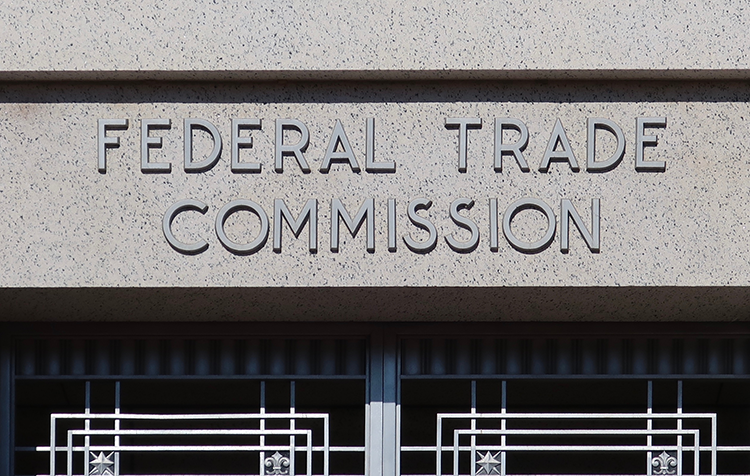FTC ban on noncompetes raises confidentiality issues—and can it be enforced?

“The FTC final rule would eliminate those noncompete agreements, which could possibly lead to some increased movement,” says Lauren Aydinliyim, an assistant professor of strategic management at Baruch College’s Zicklin School of Business. (Image from Shutterstock)
The U.S. Federal Trade Commission voted 3-2 in April to ban noncompete agreements for most American companies, and the news is making waves in the legal arena.
The rule, which rescinds most current and bans all future noncompetes, is expected to affect nearly one in five American workers, according to the FTC. It will go into effect in early September if it’s not overturned or delayed.
Nearly 30 million workers could be affected by the new rule, though senior executives earning $151,164 or more annually who also have the ability to influence policy are exempt (but when their contracts run out, they can’t be forced to sign new noncompete clauses with their employers). This ban would preempt state noncompete laws unless state law provides protections going beyond the FTC ban. Most states, however, are trending toward California, Minnesota, North Dakota and Oklahoma, which have already banned noncompetes entirely, says Pete Potente, CEO and founder of the global law corporation Potente.
The new ban has raised apprehension in the legal field, as attorneys question confidentiality and enforcement legalities.
ABA Model Rule of Professional Conduct 5.6 states attorneys can’t participate in noncompete agreements.
But those working for in-house legal departments have murkier agreements, says Lauren Aydinliyim, an assistant professor of strategic management at Baruch College’s Zicklin School of Business whose research specialty is employee noncompete agreements. She is also a former in-house lawyer.
Before the ban, the in-house lawyers who also worked in nonlegal roles, such as business strategy, were not protected under the same attorney noncompete laws. The ban is expected to bar noncompetes for nonlegal workers as well, making it easier for them to switch companies.
“The FTC final rule would eliminate those noncompete agreements, which could possibly lead to some increased movement,” Aydinliyim says. The majority of movement will be seen in so-called JD-adjacent or JD-preferred occupations in which employee noncompetes will be relatively unenforceable, she says.
Steven Hicks-Safra, general counsel at Cole, Scott & Kissane in Florida, predicts the ban could prompt legal departments to downsize and rely more on outside counsel since there would be nothing to stop in-house lawyers from leaving to work for competitors.
“It may come down to cost and internal safeguards to protect exposure to proprietary information,” he says.
Protecting proprietary information
To keep data safe without the help of noncompete agreements, law firms may turn to other tools to protect their business interests, such as nonsolicitation agreements and trademarks. For information to be entitled to legal protection as a trade secret, the owner of the information must make efforts to protect it that are reasonable under the circumstances, explains Daniel Hart, an Atlanta-based partner at Seyfarth Shaw.
Reasonable efforts can include storing confidential information on password-protected servers, using encryption, limiting employee access to it, having rigorous information technology security policies and requiring vendors to sign nondisclosure agreements.
“Because law firms also have ethical obligations to protect client information, these types of protections are likely already in place at most firms,” Hart says.
Other options: Law firms can consider agreements that pay former employees to stay out of a competitive labor force (the amount of time and details of the agreement would be negotiable), says Tom Spiggle, an employment attorney and the founder of the Washington, D.C.-based Spiggle Law Firm.
Still, confidentiality is already protected, thanks to the attorney-client privilege. And while paralegals and similar legal support staff don’t actually have attorney-client privilege, they are bound by it through their work with attorneys.
“Specifically, attorney-client privilege extends to communication between clients and paralegals or other support staff when they are assisting attorneys with legal work,” Aydinliyim says. “This means that communications involving paralegals, when they are acting under the direction or supervision of attorneys, are generally protected by the same privilege as if the communication were directly with the attorney.”
Legal tech companies rely on intellectual property protections, proprietary software and trade secrets rather than noncompetes, and this can lead to an increased risk of competitors obtaining confidential information. So we could expect to see greater attention placed on nondisclosure agreements in the legal tech department, provided these agreements are not deemed functionally equivalent to noncompetes, Aydinliyim says.
Increase in litigation
Law firms may not necessarily have to make many adjustments to their own employment agreements. But as employees challenge NDAs and other agreements that are functionally equivalent to the banned noncompetes, they will turn to lawyers for help, Aydinliyim says.
The business community is concerned that former employees can share information that would have previously been protected by noncompetes, and the U.S. Chamber of Commerce is suing to block the ban, arguing that the FTC is exceeding its rulemaking authority. The chamber surveyed businesses last year and found that 80% use restrictive covenants, including noncompetes. The businesses reported that when employees wanted to join a competitor, they were able to reach a compromise about half the time that allowed the employer to protect its interests while the employee switched jobs.
If the rule survives constitutional challenges, it’s difficult to see how the FTC could realistically police it without significantly increasing its personnel and budget, Hart says. During the FTC’s meeting to vote on the rule, Commissioner Melissa Holyoak noted the FTC’s limited resources.
“I’m particularly disappointed that the commission dedicated the commission’s limited resources to a broad rulemaking that exceeds congressional authorization and will likely not survive legal challenge,” Holyoak said during the meeting.



